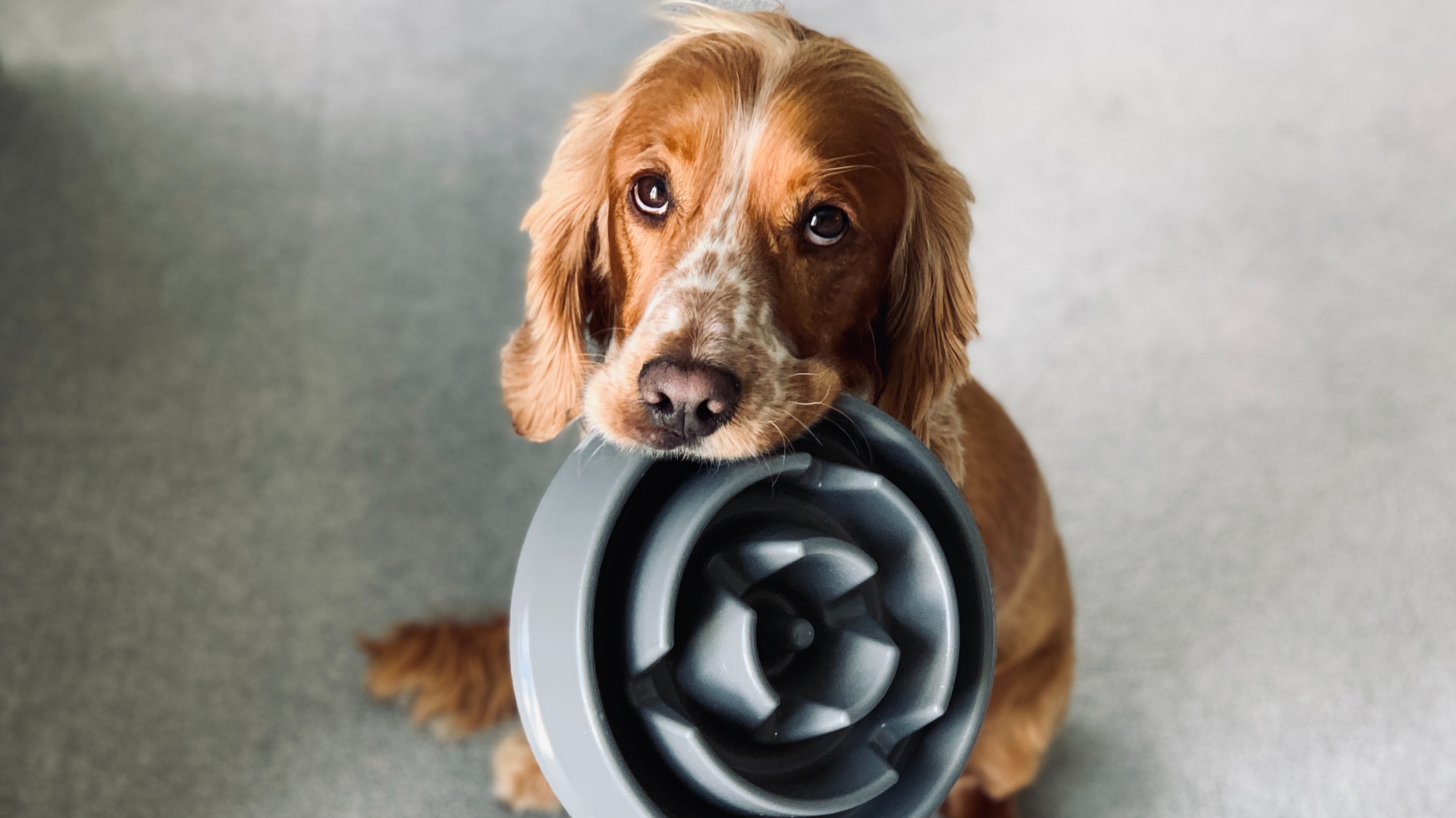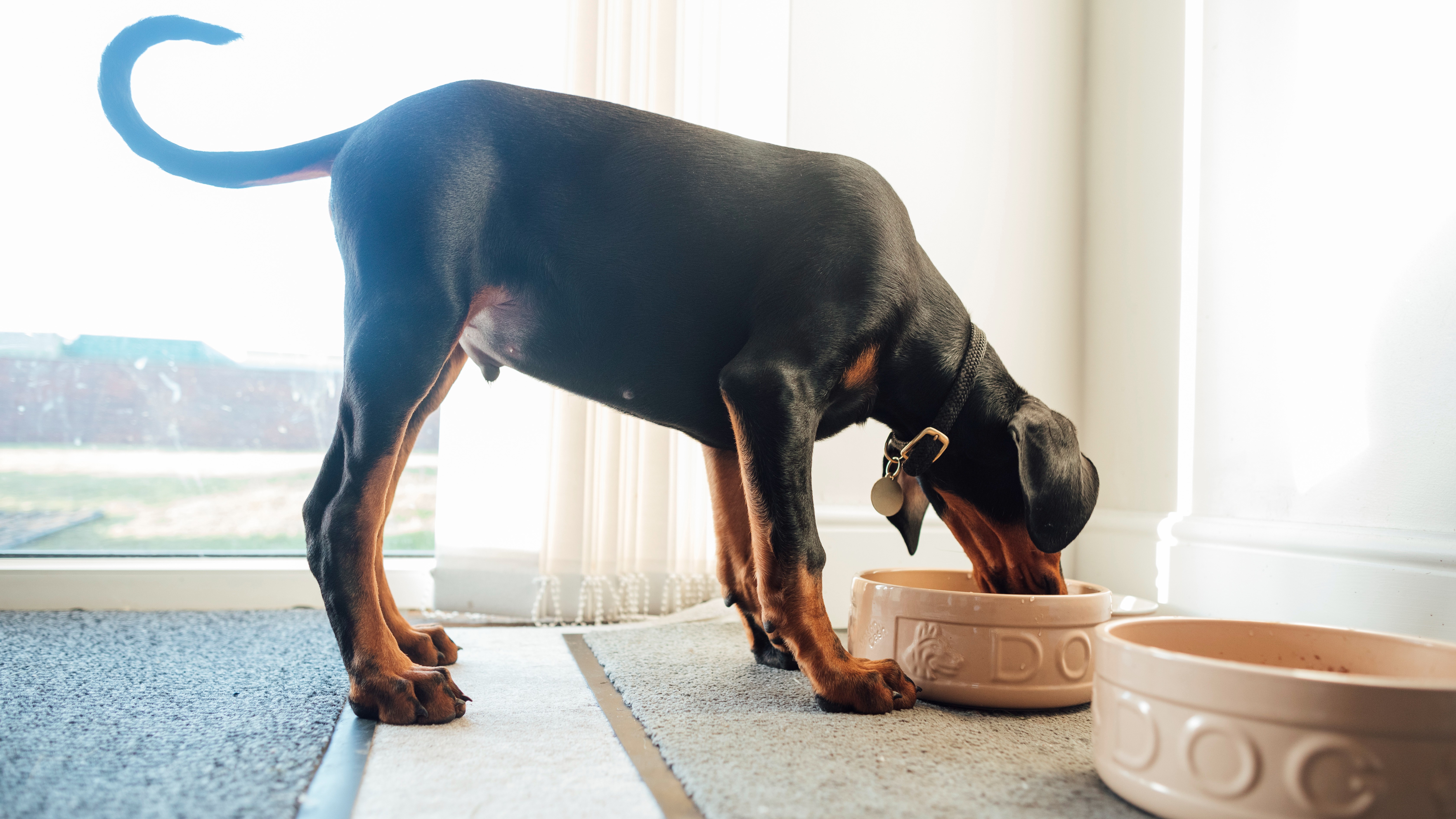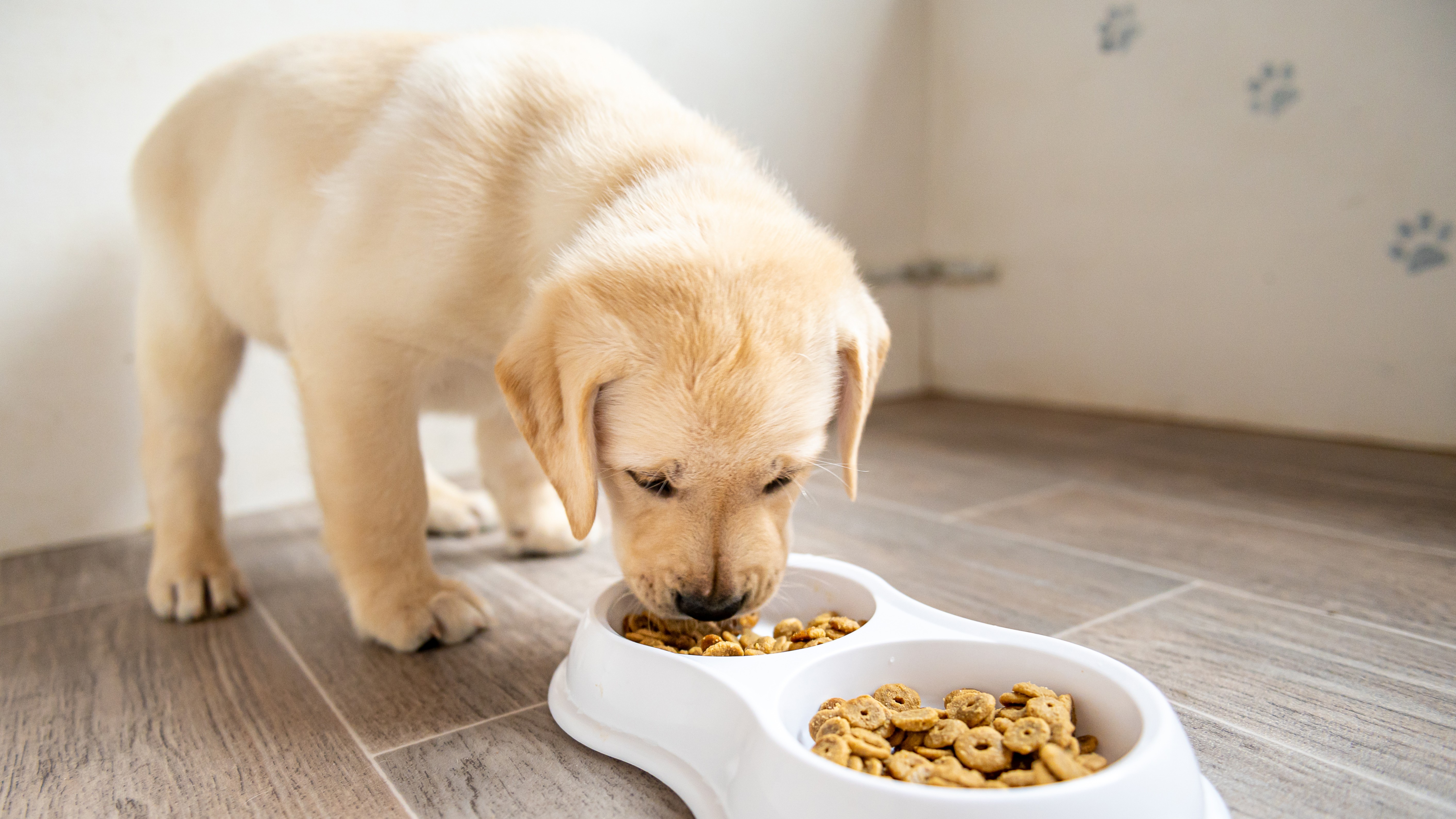Can puppies eat adult dog food?
If you’ve got a puppy, you might be wondering ‘can puppies eat adult dog food?’ We’ve asked a vet for the answer

So, you’ve picked up your fluffy new bundle of joy – but can puppies eat adult dog food rather than the special puppy food you find in the pet food aisle? You might be wondering whether separating puppy and adult dog food is just a marketing trick, but there are actually key nutritional differences between the two types. If your puppy is given adult dog food, it might not be getting all of the right nutrients that it needs.
Ensuring that you meet all of your puppy’s nutritional requirements by choosing a good puppy food is one of the best ways to set it up to have a healthy, happy life (although it might not be quite as fun as picking out one of the best puppy toys!). Poor nutrition can lead to health issues for your puppy in the long run, such as poor weight gain, deformed bone growth, and even joint issues in later life. This is why it’s so important to ensure that you’re giving your puppy all the nutrients and calories it needs to grow.
Whether you want to know when to stop feeding puppy food to your dog, or you’re simply curious as to what the differences are between puppy and adult dog food, we sat down with veterinarian Jo Woodnutt to find out why puppies should be kept on puppy food and whether it’s okay to feed adult dog food in a pinch.

Joanna Woodnutt qualified as a veterinarian from the University of Nottingham where she then went on to practice companion animal medicine in the Midlands. She really took to the consulting side of things and helped clients with medical problems such as dermatology, behavior, and nutrition - anything that involved helping clients understand their pets better.
Can puppies eat adult dog food?
In their day-to-day lives, we would recommend that a puppy should be given proper puppy food, as this will help them grow and develop in all of the ways that they need to. Veterinarian Jo Woodnutt says, “Puppies need specially formulated food because their rapid growth means they need a different combination of nutrients to an adult dog. In addition, they have small stomachs, meaning they need the nutrients to be available even in a small amount of food.”
However, if you’ve run out of puppy food and you only have adult dog food on hand, can your puppy eat it occasionally? Woodnutt says, “A puppy can eat an adult dog’s food in a pinch, but it’s not something you’d want to do for more than a day. Your puppy will cope with an unbalanced diet and a lack of certain nutrients for a couple of meals but they will quickly start to cause a problem if the adult diet is fed regularly or as more than a one-off.”
Most good breeders will usually send some of the puppy food they’ve been feeding your pup home with you, but you don’t necessarily have to stick to this if there’s a different brand that you’d prefer.
If you want to switch your puppy to a new food, we would recommend ensuring that it’s compliant with the AAFCO and also follows the WSAVA guidelines. It’s also important to switch your puppy’s diet over slowly. Woodnutt says, “Remember, any sudden change in diet (like when you run out of food) risks causing an upset stomach.”
Get the best advice, tips and top tech for your beloved Pets
The American Kennel Club recommends transitioning food over the period of at least a week (although puppies with more sensitive stomachs might need a longer and slower process), following the below schedule:
Day 1: 25% new diet and 75% old diet.
Day 3: 50% new diet and 50% old diet.
Day 5: 75% new diet and 25% old diet.
Day 7: 100% new diet.

What’s the difference between adult and puppy dog food?
If it’s important to feed your puppy food that’s specially formulated for it, what exactly makes it different from adult food? Unfortunately, there can be serious consequences to not feeding your puppy the right food. Woodnutt says, “Adult dog food doesn’t have the right calcium-to-phosphorus ratio for bone growth. Therefore, puppies fed this diet may have deformed bone growth.”
Protein and calories can also have a big impact on a puppy’s growth. Woodnutt advises, “Adult dog food is generally lower in protein, so puppies fed this food may not grow to their full height and could be weak or uncoordinated. Puppy food is higher in calories – a puppy will have to eat a lot more dog food to get the same calories, leading to an upset stomach or insufficient calorie intake leading to weight loss or poor weight gain.”
While it might seem easier or cheaper to feed your puppy adult dog food, the potential consequences of this could be very harmful. Woodnutt says, “In all, a puppy regularly fed adult dog food is likely to be smaller, less energetic, weaker, and more likely to get ill, as well as more prone to arthritis and joint problems in later life.” Not only will these health problems cause your dog discomfort and pain, but they will also be likely to incur expensive vet bills.

How much food should you give a puppy?
We can’t give a definitive answer on how much food you should be giving your puppy, as it’s dependent on a variety of factors, including how old they are and their weight. However, on the back of your puppy food, you should find instructions on how much food you should give them. This information is usually presented in a table, which makes it easy to adjust your portions as your puppy gets older. Lots of pet stores have facilities where you can weigh your pet or your vet will be happy to help with this.
If you’re wondering how you can balance a puppy’s normal food with the best puppy treats, the general rule of thumb is that treats should make up no more than 10% of their total diet. While treats can be a really useful tool for positive reinforcement, they can become too much of a good thing. If you go over the 10% rule, your puppy might not get all the right nutrients that they need and you might even find that they get an upset stomach from the rich treats.
Want to learn more about your puppy? Here's how to stop puppy food aggression.
Louise Carey is a freelance writer and the Editor of sister website Top Ten Reviews. She has been working in publishing for seven years, contributing to publications including The Independent, TechRadar, Digital Camera World and more. As the proud pet parent of a reactive border collie with a food allergy, it’s been necessary for Louise to explore a variety of fun and exciting ways to enrich an energetic dog that can’t always go on walks. She’s passionate about sharing the information she’s learned to help other pet owners as well.

